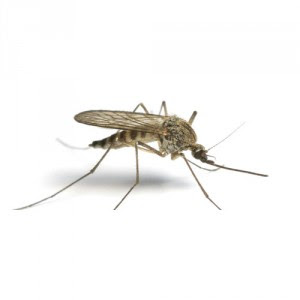Acquired Immuno Deficiency Syndrome (AIDS) is caused by
Human Immunodeficiency Virus (HIV). The presence of HIV in blood, semen and
vaginal secretion of infected people promotes the spread of the infection
through sexual contact (both heterosexual and homosexual), exposure to contaminated
blood and blood products. The virus can also be transmitted to the child from
the mother. There is no concrete evidence to show that it is transmitted
through insect bites.
Mosquitoes do transmit diseases like Malaria. In the case of
AIDS they act as biological vectors and a certain period of time has to elapse
for the parasite to become infective. The vector can transmit the infection
only after the infectious agent undergoes a developmental process or multiplies
in its body.
However HIV does not replicate in mosquitoes. Scientists at
Centre for Disease Control, Atlanta have proved that even in mosquitoes
injected with HIV contaminated blood, the virus survives only for one hour.
Further, studies on epidemiology of AIDS have provided no evidence linking
mosquitoes with disease.
How many kinds of mosquitoes are there?
Throughout the world there are over 3,000 species of
mosquitoes. Florida has 76 mosquito species from 13 different genera, 30 of
which occur throughout the entire state. There are 14 species in Bay County.
Each type of mosquito has a common name and a scientific name which includes a
genus and a species name. For instance, the Asian tiger mosquito is the common
name, while Aedes albopictus is the scientific name. Aedes albopictus is a
container-breeding mosquito, and on our visits to residents homes this is the
most common mosquito found.
What purposes do mosquitoes serve?
Mosquitoes are an important link in the food chain. Many
animals depend on them as a source of food. During their aquatic stage,
mosquito larvae provide food for the other aquatic insects such as, dragonfly
nymphs and beetles, fish, frogs and other water-dwelling animals. As adults,
mosquitoes are eaten by birds, bats, spiders, lizards and other insects.
Mosquitoes do not feed on blood alone. The blood meal is taken by the female to
produce eggs. Both male and females need liquid nourishment for food. Plants
provide the source of liquid nourishment. Mosquitoes feed on plant nectar,
honeydew, fruit juices and liquids oozing from injured plants. Because of this
need for nourishment, mosquitoes are important pollinators of wildflowers
during this feeding process.
Are mosquitoes attracted to some people more than others?
Yes. Mosquitoes are attracted to the carbon dioxide (CO2)
emitted from the breath and pores of humans. In addition to CO2, some species
of mosquitoes are attracted to certain fragrances and colors. During mosquito
season it is recommended that people who wish to be less attractive to
mosquitoes wear unscented products such as hair spray, soap, deodorant, etc.
and light colored clothing.
Why can't mosquito control programs spray during the day?
Mosquitoes are more active in the evening, and people are
less active. The second reason is the spray will be lifted quicker from the
ground due to rising air currents during the day. Daytime spraying is also not
practiced to avoid killing beneficial insects.
When can I expect to see a spray truck?
When conditions meet the required criteria, you should see a
spray truck every 5 to 7 working days (weather permitting). Adulticide spraying
can vary from year to year due to environmental conditions, which include
rainfall amount and tide changes.
Is the Spray harmful to people or pets?
The amounts of mosquito control pesticides that are sprayed
out of the trucks are not harmful to people or pets. However, as with any
pesticides, it is a good idea to keep exposure to a minimum. For this reason,
children should not be allowed to follow the mosquito trucks as people often
did in the 1940s and 1950s. Pets usually are repelled by the high pitch of the
machine. Therefore, even if it seems that they are not spraying, the trucks
should not be followed. Unless someone is very sensitive or allergic to
pesticides, washing the skin with water is all that is needed. At the low
insecticide dosage used, no symptoms should be experienced. People who are
sensitive should call the office and notify us prior to any spraying.
Is it safe to eat vegetables or fruit from the garden after
a mosquito control application?
Fruits and vegetables exposed to malathion at mosquito
control rates can be safely eaten after washing the food to cleanse it of germs
and microorganisms. In fact, malathion is registered by the EPA for the control
of many insect pests on a wide variety of fruit and vegetable crops. Courtesy :
The Hindu




.jpg)

No comments:
Post a Comment